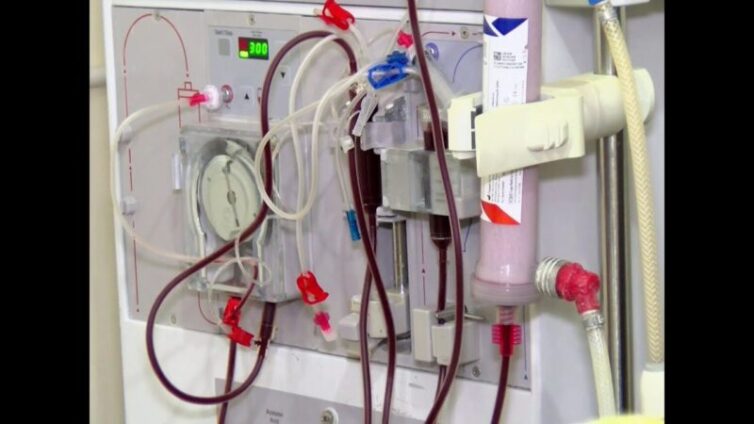
Audio By Carbonatix
The Chief Executive Officer of the National Health Insurance Authority (NHIA), Dr Dacosta Aboagye, has announced that the government's free dialysis services will be available in 40 health facilities across the country from December 1, 2024.
The NHIA recently added dialysis services to its benefit package, and the policy is set to begin on December 1. This initiative aims to provide relief to many Ghanaians who cannot afford the cost of dialysis.
Currently, the cost of dialysis in the country ranges between GHC300 and GHC1,000, and available data suggests that between 4 million and 5.2 million citizens have some form of renal function impairment.
According to Dr Aboagye, patients will be able to access the service in 40 pilot health facilities, including private hospitals.
“We have currently listed about 40 of these centres that our patients would have to go to,” he said.
He explained that on Tuesday, November 26, the NHIA will engage the heads of these facilities to discuss how they will implement the service for patients.
Speaking on Joy News’ AM Show on Monday, November 25, Dr Aboagye further emphasised that the programme is sustainable, as the Authority has the necessary funds to implement it.
He also stated that a change of government will not affect the free dialysis treatment, as the service has already been incorporated into the NHIA's benefits package and is backed by the constitution.
Vice President Dr Mahamudu Bawumia, who is seeking to become the substantive president, has promised to provide free dialysis treatment to patients.
He earlier announced that the NHIA would begin the programme on December 1. According to him, the new free dialysis policy reflects his government’s commitment to improving the well-being of citizens suffering from renal diseases.
The pilot programme was launched earlier this year for patients over 60 and under 18 years of age.
Meanwhile, John Mahama of the NDC, who is seeking re-election, has promised to establish modern dialysis centres in regions that do not currently have one. The former president stated that the decentralisation of these centres would improve access to treatment.
Available data indicates that approximately 2,000 people are currently receiving dialysis in the country.
These individuals often seek alternative forms of treatment and access renal care only when the situation becomes acute. This negatively impacts their quality of life and life expectancy.
Latest Stories
-
Ashanti: Police kill 3 suspected robbers during shootout at Anwiankwanta on Christmas Eve
2 minutes -
Why Ghana’s Constitution Review Committee’s Work Should Be Extended to Strategic Communication
6 minutes -
Prof. Prempeh defends lowering presidential age, cites Kufuor’s early leadership roles
23 minutes -
Presidential Age Limit: Unrestricted democracy could breed chaos – Prof. Agyeman-Duah warns
33 minutes -
MP Baffour Awuah advocates for legal framework on presidential continuity, not term extension
37 minutes -
Ghanaians entitled to propose constitutional changes – Charlotte Osei
40 minutes -
At 30, you lack the experience to be a President – Prof Agyeman-Duah
44 minutes -
One-year extension of presidential term unnecessary – Baffuor Awuah
50 minutes -
Sam George lauds coordinated crackdown on cybercrime in Tabora and Lashibi
55 minutes -
100 arrested in Accra’s Tabora in major Mobile Money fraud crackdown
59 minutes -
BOG put GH¢4.69bn into gold-for-oil, lost over GH¢2.1bn with no impact — Audits show
1 hour -
CRC opted for broader reforms over abolishing ex-gratia – Charlotte Osei
2 hours -
Mahama’s record shows four-year presidential term is sufficient – Inusah Fuseini
2 hours -
Four-year term enough for accountability – Inusah Fuseini
2 hours -
CRC Proposals: We were very mindful not to create problems while solving existing ones – Charlotte Osei
2 hours

